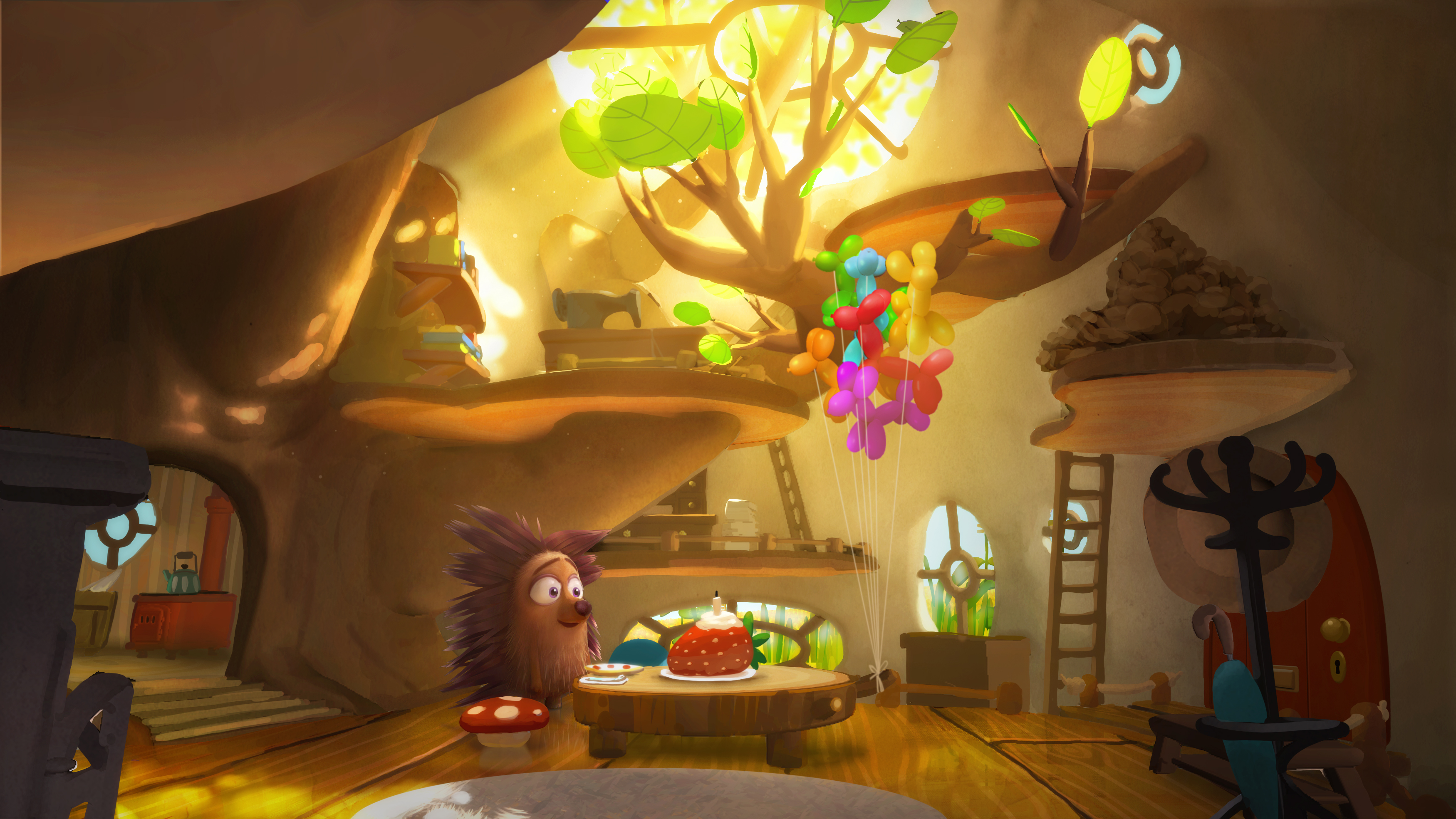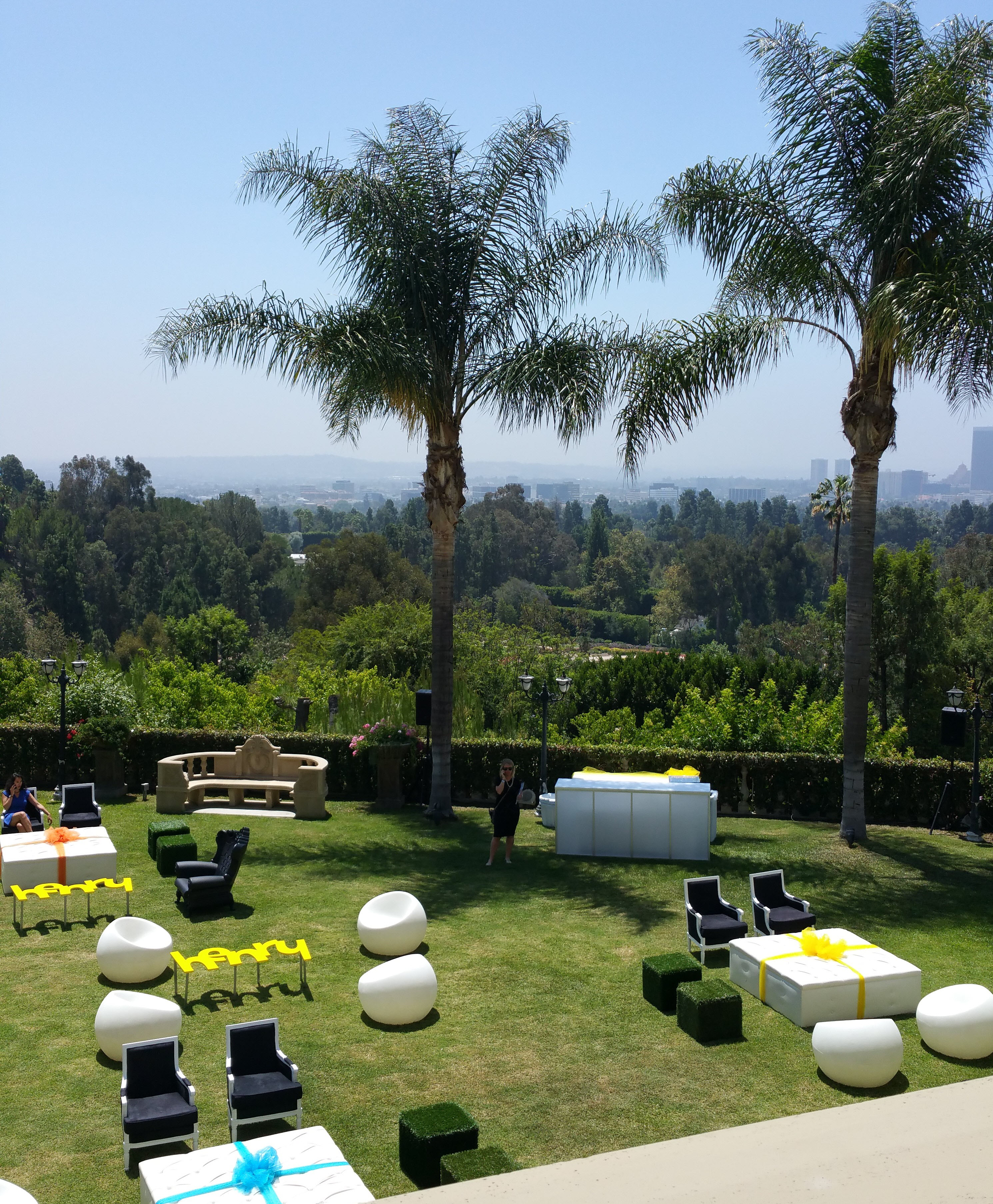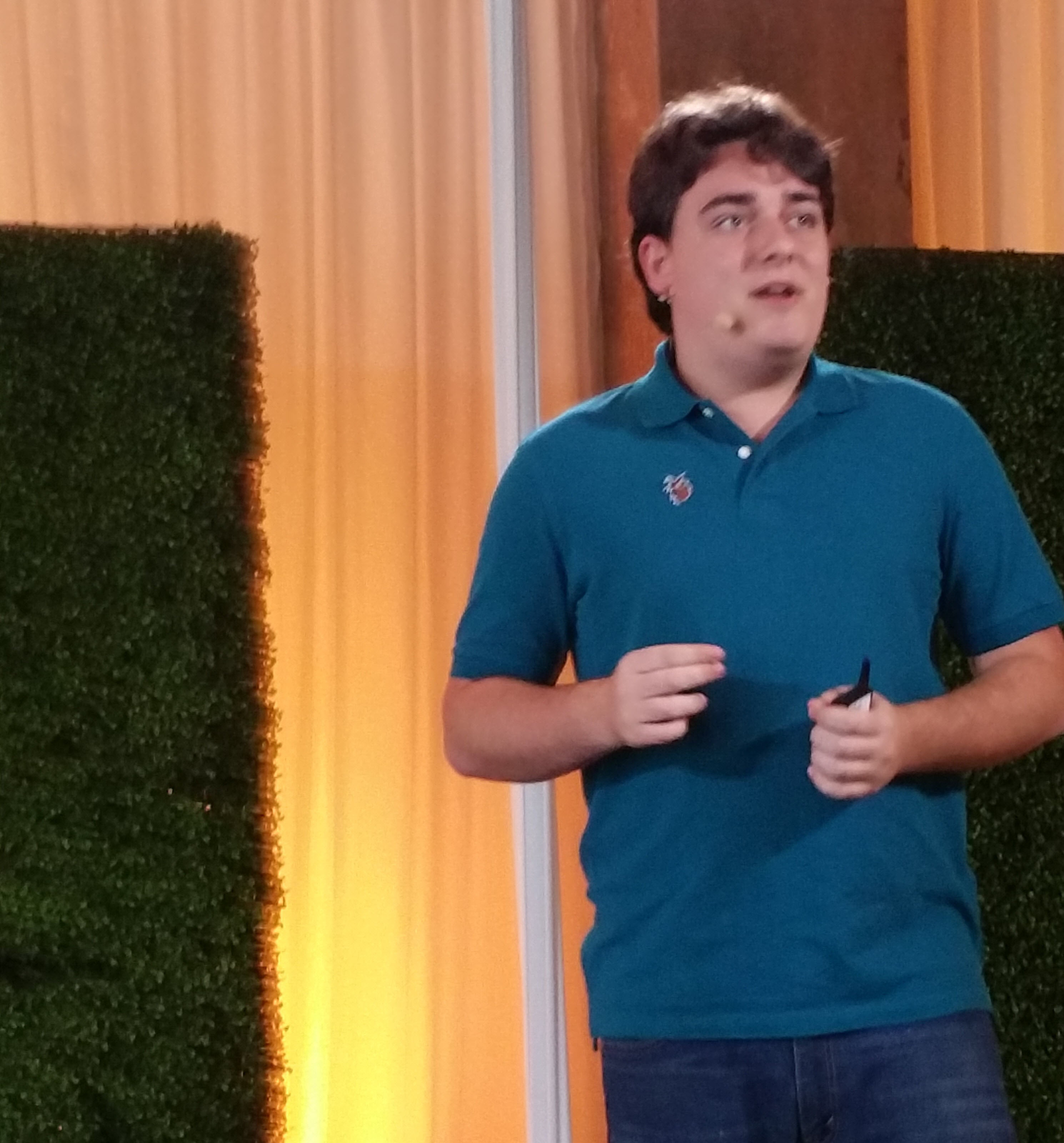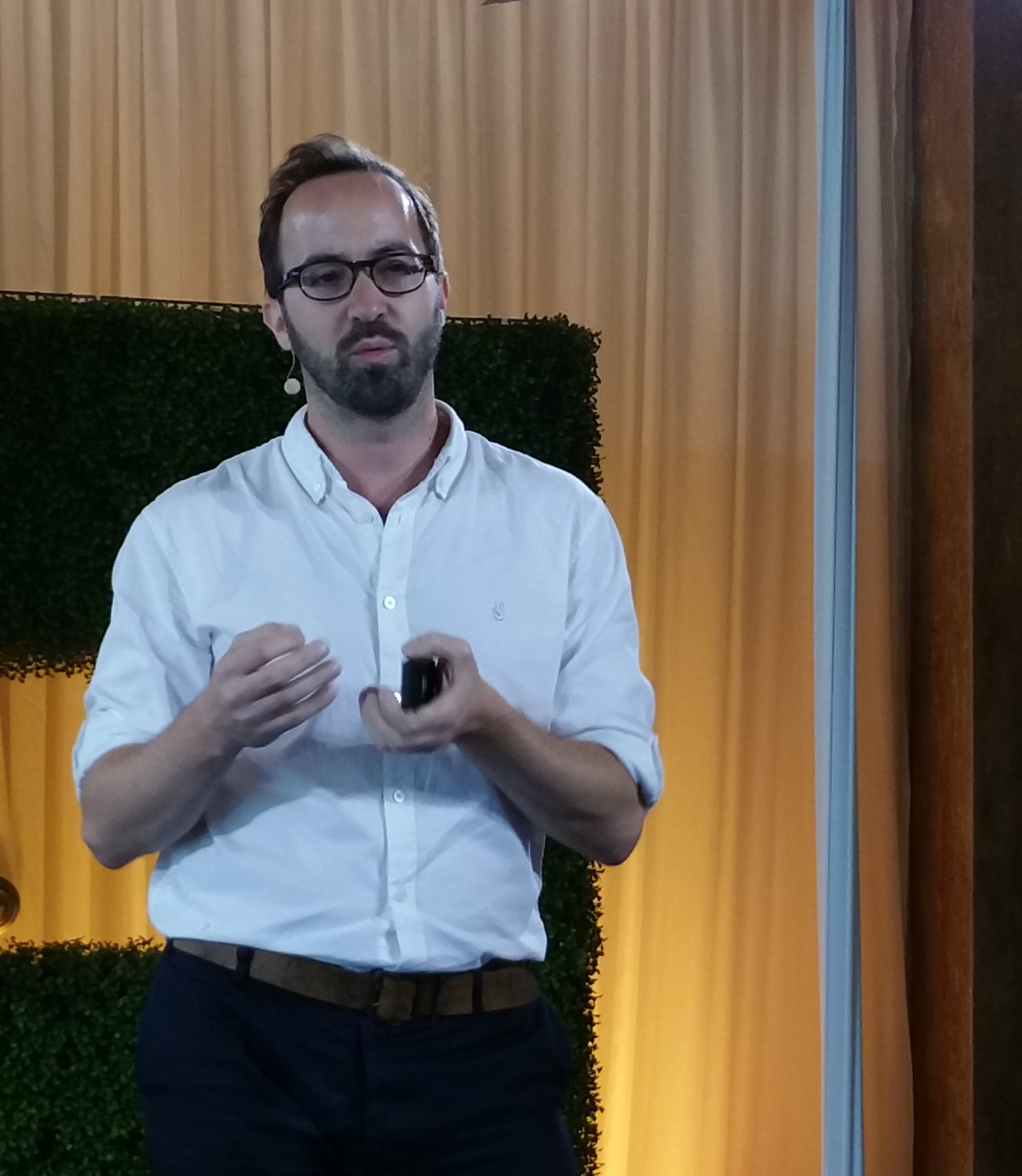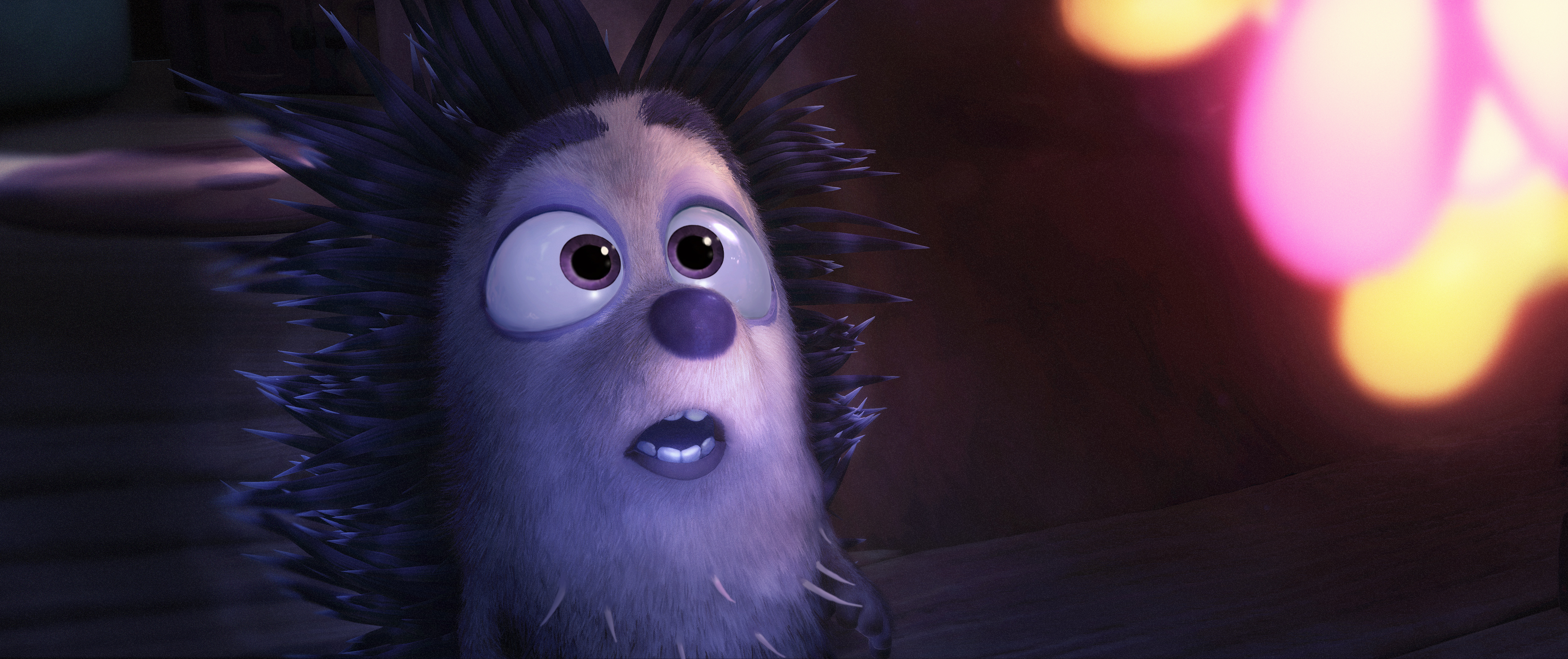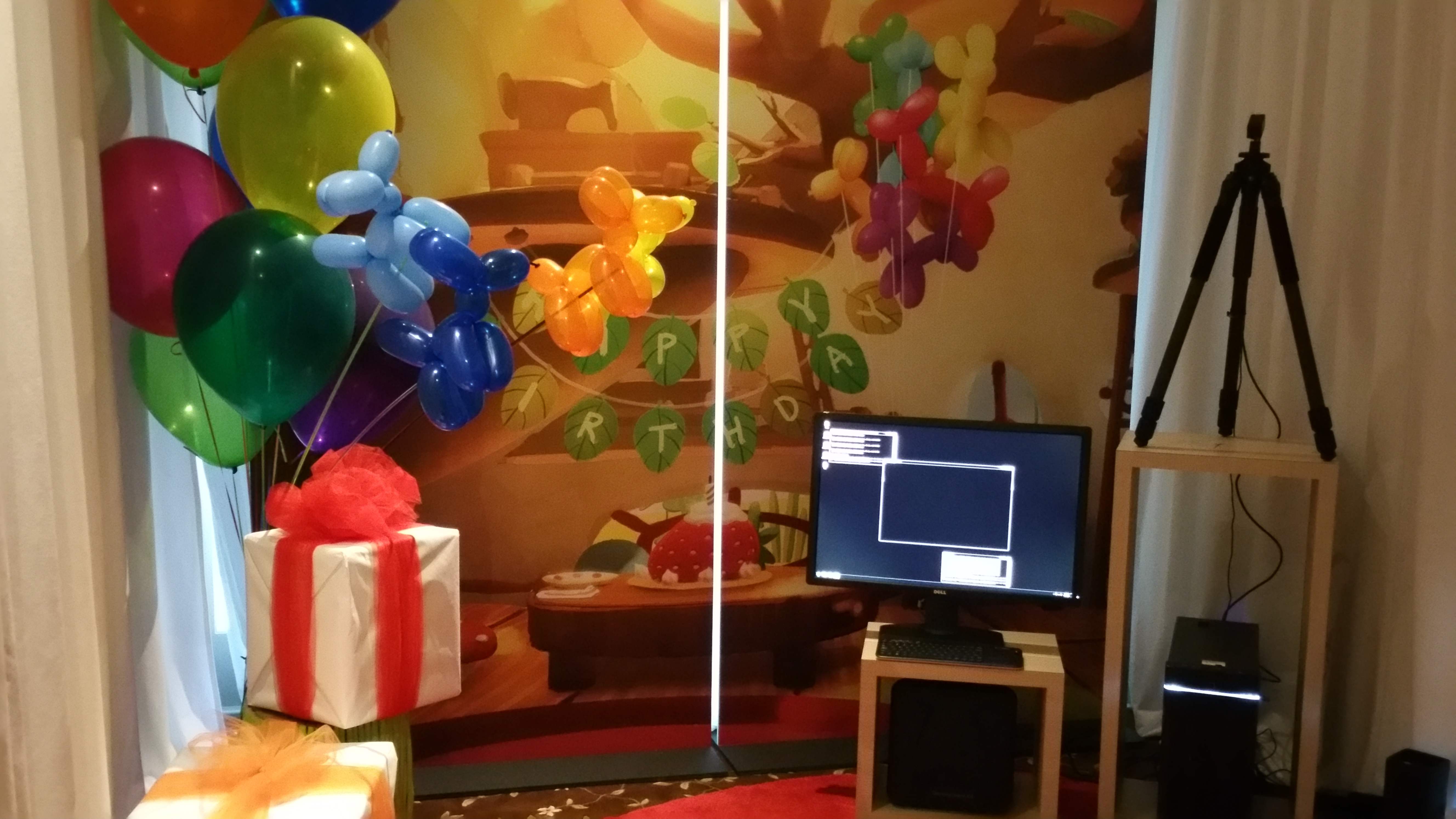Oculus Premiers 'Henry' And Signs Of Things To Come
Oculus recently hosted a small, private event in a spectacular mansion in Beverly Hills, where the company screened Henry, a short animated film made by Oculus Story Studio using Epic's Unreal Engine 4, exclusively for viewing on a VR headset (which is to say, the Oculus Rift VR headset).
The film was fine. Delightful, even. Youngsters will love the story and the Henry character. He is a hedgehog who loves to hug, which is problematic, as you can imagine. And if you can't, Henry's animators oblige in humorous fashion. The film takes place on Henry's birthday, where he proceeds to frolic with dancing animal balloons in celebration. Balloons and a prickly, hugging hedgehog are no match, so the party comes to a predictable, disappointing conclusion. In the finest tradition of furry creature animation, Henry has a heartwarming ending, but I won't be the one to spoil it for you.
A New Chapter In VR
But for us at Tom's Hardware, the story of Henry is really more a chapter in the early story of VR's future. Almost anyone who has tried a full VR demonstration becomes quite easily convinced that the technology is serious, and seriously capable of altering the landscape of -- well that's just it: Of what?
The VR focus so far has been mostly on gaming, where both immersion and interaction take on new and evolutionary meaning. That much is clear, and finally there are some exciting games emerging that we hope will be ready by the time the Oculus Rift ships. But outside of Square Enix, there aren't any major studios demonstrating VR games yet.
With Henry, which is the second film from Oculus Story Studio, the company is demonstrating VR's potential in cinematic story telling.
Oculus Story Studio is less than a year old. Its first short animated film was Lost, launched in January at the Sundance Film Festival. Oculus premiered Henry to a mixture of entertainment industry journalists and technology writers like me, but in high Hollywood fashion (or so I imagine), with the location of the event kept secret until the last moment for security purposes.
Although Oculus founder Palmer Luckey kicked things off, it was the Story Studio team's event, led by Saschka Unseld, the division's creative director. Unseld, like many of the Story Studio team, is steeped in Hollywood, not technology. This crew consists of animators and directors, some of whom come from Pixar, others from Dreamworks, and all with films like Brave and Toy Story 3 and Cars 2 to their credits.
Get Tom's Hardware's best news and in-depth reviews, straight to your inbox.
In other words, Oculus isn't just dabbling here. You don't hire away Pixar and Dreamworks employees as a publicity stunt, even with Facebook dollars.
A New Story
Still, VR film making is nascent. Unseld talked about building a team from the ground up to experience working with the strengths and weaknesses of a medium like VR for the first time. Unseld sees VR as a chance to recapture the wonder of a memorable film character, but to do so by creating a sense of interaction with the character. Indeed, Henry looks right at you when he's elated and excited, as well as when he's sad. The team used music for Henry, but the characters didn't talk, save for the voice of the narrator (the voice of Elijah Wood).
Often, you're alone with Henry; at first, I felt it was odd that he was celebrating his birthday alone, but I did feel a little bit as if I were at the party with him, that he was celebrating it with me. Just a little.
And I think that's precisely the point. Unseld said that VR allows creators to remove the separation of the audience and the story, to remove the "fourth wall." I'm not sure that Henry completely succeeds in this endeavor, but it doesn't fail, either. I could see the possibility, including an easy way to transition Henry the VR movie into Henry the VR video game; and either way, I felt closer to the story, if not completely connected.
Even Unseld talked about Henry as a "glimpse of what the future holds," and I think that's the point, too.
Remaking The Movie-Going Experience
Although many of us watch movies at home, or on a tablet or computer with a headset plugged in, and many of us play games alone and immersed, movie going has always been a community activity, or a family event, or a date night. I experienced Henry alone, in a small room with a tracking sensor and a PC; just me and the Oculus Rift HMD.
It was entertaining, to be sure, but I wasn't really going to the movies. Years from now, maybe those words will seem silly. But for now, they represent a cultural and temporal barrier. The leap from solo immersive PC gaming to solo immersive VR gaming isn't a far one. An animated VR film is a leap beyond, and it could well be up to Oculus to help us have faith.
Many of the Hollywood journalists at the Henry premier were talking about the headset, whether it would be affordable when it finally shipped. When I pointed out to one of them that the PC to power it would probably cost three times as much, he was surprised. But at least those parts — the headset and the PC — exist, even if they will limit the available market at first.
The content is the question, and Oculus is doing everything in its power to foster the development of it, with its gaming studio (Worldwide Studios) and its Story Studio. By showing glimpses of possibilities, by being its own guinea pig (note to Oculus: feel free to make that a character; less prickly, just as cute), by taking the bumps and bruises, by employing some of Hollywood's brightest animators and directors, by throwing money at independent game developers, it is trying to jump start multiple content ecosystems.
Fritz Nelson is the Editor-In-Chief of Tom's Hardware. Follow him on Twitter, Facebook and Google+. Follow Tom's Hardware on Twitter, Facebook and Google+.
-
Pedasc ReplyIn what ways does a VR movie differ from a 3D movie?
VR allows you to look around and makes it easier for the world to react to you a bit more realistically. Basically it can make you a bit more of an active observer rather than a passive one. As the article said they are trying to break the fourth wall. -
AnimeMania That might be fine for an unscripted movie, looking at a beautiful landscape or similar, but if there is a script, how will you know the person is looking in the right place to advance the story. Say that you are looking at a park bench when behind you the aliens are destroying the city. If you don't have access to the rewind controls, you might miss the most interesting parts of the VR movie.Reply -
Pedasc I'm not sure how it would work, I'm mostly guessing here but in most cases I would think it would be fairly obvious where you should be looking and they would probably give you obvious clues so you didn't miss anything. It might also lend itself to a more varied experience each time someone watches. That said this definitely would have a number of challenges that we wouldn't have seen before.Reply -
surphninja Traditionally, studios have released a video game to accompany a movie release. Now we'll have movies that also double as their own video game! Crazy.Reply
I know I'm coming across as not being able to think about this outside of the context of game, but I do get it. This is an insanely monumental shift in the way we experience stories. It's neither a movie nor a game. But it's cool to think that you're watching this "movie," and then maybe you could stop the story and take control of characters, or go back to scenes after the credits roll and see how those scenes are now levels. Even that is probably small thinking, not even touching where this technology will take us. Hard to imagine.
I'd like to see a thriller story, similar to Heavy Rain or Momento or Se7en. Some kind of murder mystery where you can jump between scene locations or explore a small city. Your understanding of the story would depend on which scenes you witnessed, and repeat viewings but in different locations may give you further clues or different perspectives. Where you organically progress to the end of the story, following your own path, and the "ending" of the story depends entirely on what location you ended up in. You could compare notes with your friends, suggest which locations to be at during such and such time of the events, and each person might have a totally different experience.
Imagine watching Se7en, but you're with Kevin Spacey instead of the detectives at the beginning of the movie. A totally different experience. -
surphninja 'Scene Select' at the menu would take on a whole new meaning, as it would actually take you to another location.Reply -
FritzEiv Wow. These are all great observations. I kept thinking, while listening and watching, but also in writing this, that I needed to suspend my biases toward the current cinema experience. It's often difficult to imagine something that hasn't been created yet. Film makers tell a story, focus your eyes and attention and point of view through artistry. An immersion might let the viewer choose a limited but different set of focal points, which means there could be things the artist intended us to see, but that we've actively chosen to miss. Hard to wrap my head around that. I do think it will require a completely different creation process, perhaps -- as has been pointed out -- more like a game. But once again, we're seeing this coming virtual reality through our existing story-telling lenses: the film, the game, long form and short form, 3D. I keep thinking what if VR story telling is something entirely different than any of those.Reply -
SeeLukeBair You are forgetting a VR movie is rendered realtime which allows you to do stuff like pause the explosion of aliens that is about to spill forth behind you untill your attention is in the correct place. VR knows where you are looking and where you have been looking. To get you to stop looking at the bench you may hear a sound behind you or something may just fly past your face to get you to turn around. A 3D movie is just a linear shoot without this ability.Reply
A VR movie may also include the ability to explore different parts of the set (say to check out what the villains evil control panel really looks like), depending on what the director wants to allow.
-
surphninja For real. Obviously, it's hard to be anything but naive about this. The whole experience is completely uncharted territory, and real visionaries are going to take this to places we couldn't even brainstorm here. The evolution of VR as a storytelling device will take decades to fully mature. It took quite a while for film to develop beyond just filming a play.Reply -
AnimeMania ReplyYou are forgetting a VR movie is rendered realtime which allows you to do stuff like pause the explosion of aliens that is about to spill forth behind you untill your attention is in the correct place. VR knows where you are looking and where you have been looking. To get you to stop looking at the bench you may hear a sound behind you or something may just fly past your face to get you to turn around. A 3D movie is just a linear shoot without this ability.
A VR movie may also include the ability to explore different parts of the set (say to check out what the villains evil control panel really looks like), depending on what the director wants to allow.
So a VR movie might be completely computer controlled in real time like a video game. Can possibly be filmed with one of those round balls containing multiple cameras all stitched together so that you can see the movie in 360 degrees. Might suspend certain actions until you are focused on a specific area, which suggests that a VR movie can be variable in time length and that VR movie watching is an individual rather than a group activity.
